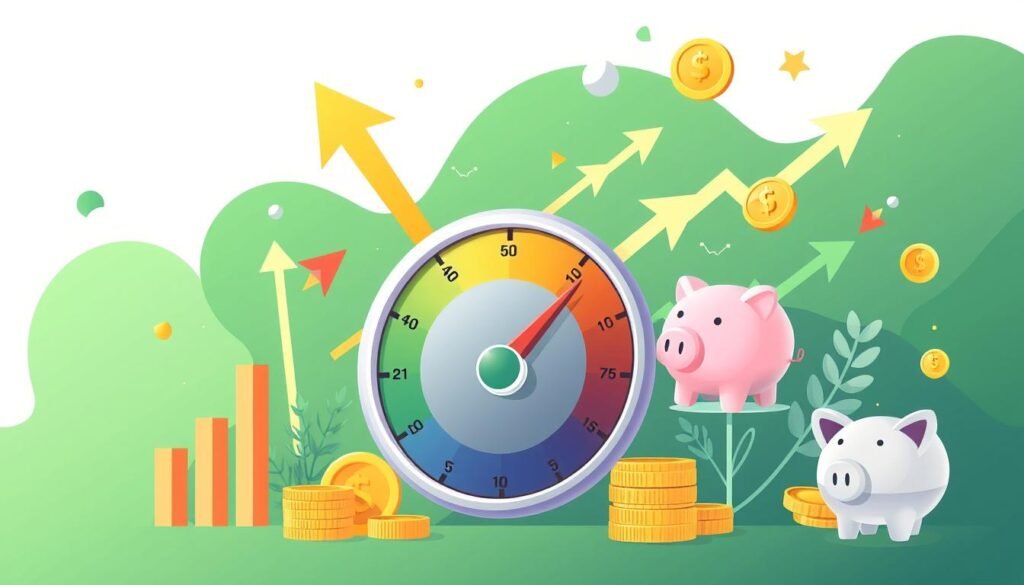This post may contain affiliate links, which means I may earn a commission if you purchase through these links at no extra cost to you
As a realtor, I’ve seen firsthand how much your credit can shape your financial future—especially if you’re planning to buy a home. I’m taking steps to stay credit-strong, and I encourage my clients to do the same. A solid credit score not only helps you qualify for better mortgage rates, but it can also affect whether you’re approved to rent, get a job, or even secure insurance.
I’ve worked with buyers of all ages, and I know that life happens—medical bills, missed payments, unexpected emergencies—but I’ve also seen how small steps can lead to big credit improvements. Whether it’s paying down credit card balances, correcting errors on your report, requesting higher credit limits, or setting up auto-pay, every smart move makes a difference. Strong credit opens doors, and it’s never too early to get prepared.
Table of Contents
ToggleWhy Building Credit Still Matters in 2025
A good credit score is more important than ever. It affects everything from loans to jobs. It’s not just about being responsible with money anymore. A high score helps get better loan rates, housing, and can even impact job prospects. So, paying attention to your credit is important.
Impact on Loan Approvals
Your creditworthiness plays a big role in getting loans. Lenders look at your credit score to decide if loaning money to you is risky. If your FICO score is under 580, this is seen as poor. This can lead to denied applications or bad loan terms. With minor increases in loan defaults, it’s vital to keep a strong score for loan approvals and good credit deals.
Effect on Interest Rates
Interest rates are closely tied to your credit score. A higher score can mean lower interest rates, saving money over time. High rates can make borrowing much more expensive. Managing your credit well becomes financially beneficial.
Importance for Renting and Employment
Where you live and work can be directly influenced by your credit score. Landlords and even some employers run credit checks—and a strong score often gives you more options and better opportunities. It’s not just about borrowing money; it’s about showing you’re dependable and financially responsible. When you build and maintain good credit, you’re not only setting yourself up for better loan terms and lower interest rates—you’re also increasing your chances of securing a great place to live or landing that job you’ve been aiming for.
Understanding Your Credit Score
Understanding what goes into your credit score helps you manage your credit well and develop healthy financial habits.
Components of a Credit Score
The calculation of your credit score includes several key factors. The most important ones are:
- Payment History: This is 35% of your FICO score. Paying bills on time is crucial. Late payments can affect your credit report for up to seven years.
- Credit Utilization: Making up 30% of your score. Keeping this below 30% is beneficial for your credit score.
- Length of Credit History: Longer credit histories tend to help your score.
- Types of Credit Accounts: A variety of account types, like credit cards and loans, can improve your score.
- New Credit Inquiries: New accounts can lower your score short-term. They reduce your credit’s average age and add inquiries to your report.
Credit Utilization
Credit utilization shows how much credit you’re using. To keep a strong credit score, it’s good to have a low utilization ratio. Sticking to under 30% is a rule, but the best scores often have lower than that. Wise use of your credit can avoid problems like charge-offs, which stay on your report for seven years.

Managing your credit utilization well helps your credit score. It’s a big part of how your score is figured, affecting your long-term finances.
Importance of Payment History
Payment history is very important for a good credit score. Even one late payment can lower your score a lot, especially if your score is high. Paying on time for a year can greatly boost your score. Remember, late payments can harm your score for a long time.
It’s wise to form good financial habits. Regularly check your credit report and fix any mistakes right away. Being informed and proactive helps you deal with credit score complexities and remain financially stable.
Advanced Strategies for Building Credit Quickly
Using smart ways to quick credit building can help you get a good credit score fast. Paying off big credit card debts is a key move. It makes your credit use look better. Keeping your use below 30% is best for a healthy score.

Asking for higher credit limits can also help right away. It makes your credit use ratio better without more debt. Also, think about joining someone else’s account as an authorized user. You get the perks of their good credit history without adding debt.
Choosing new credit carefully is smart too. Look for cards with no fees and a 0% start APR to keep costs low. Opening a new account usually impacts your FICO® Score after about six months. So, being patient in your financial planning is important.
Credit builder loans or services are another good step. They help build your credit history and make your credit use better. These are great for new credit builders or those fixing their scores. Fixing negative items on your report can boost your score a lot, sometimes by over 100 points.
In short, following these credit score strategies and managing your credit well can speed up building credit. Quick wins are possible, but long-term efforts work best. New info usually shows on your credit report in 30 to 90 days. Bigger improvements take around a year to show.
Here’s a quick look at different credit scores and what they mean for you:
| Credit Score Range | Rating |
|---|---|
| 300 to 560 | Poor |
| 561 to 659 | Fair |
| 660 to 724 | Good |
| 725 to 759 | Very good |
| 760 to 900 | Excellent |
The Role of Credit-Building Apps
In 2025, credit-building apps have become essential for managing and boosting credit scores. They use new financial technology. These apps help you follow and boost your credit rating in new ways.
Popular Credit-Building Apps
Well-known credit-building apps include Experian Boost, SeedFi, Kikoff, MoneyLion, and Grow Credit. They offer services from monitoring credit to interest-free loans. Experian Boost, for example, lets you add rent and utility bills to your credit report, which might boost your score.
How Credit-Building Apps Work
Credit-building apps use financial data not usually included in credit scores. They track your payment history and offer insights into your credit score changes. They also alert you to issues. Some apps give you access to loans that help you show you can pay back money on time.
Benefits of Using Credit-Building Apps
Using credit-building apps has many benefits:
- Continuous credit monitoring to inform you of score changes and potential fraud.
- Access to rent payments and other data that can boost your credit score.
- Notifications about hard credit inquiries to help manage new credit applications.
- Better understanding of what affects your credit, so you can make smarter financial choices.
Adding credit-building apps to your financial habits can really help improve your credit score. By choosing and using them wisely, they can help your financial growth and protect your future.
Final Thoughts
Keeping a good credit score is important to financial health and opening doors to opportunities. It’s smart to keep your old credit accounts open. This action helps you benefit from a long credit history. Also, space out your applications for new credit to avoid harming your score.
Using less than 30% of your available credit is important. This keeps your credit utilization ratio healthy, a big part of your score.
Having different types of credit, like credit cards and loans, helps your score. If you become an authorized user on someone else’s card, it can help you too. That’s if they pay on time. And, always watch your credit report for mistakes or fraud.



